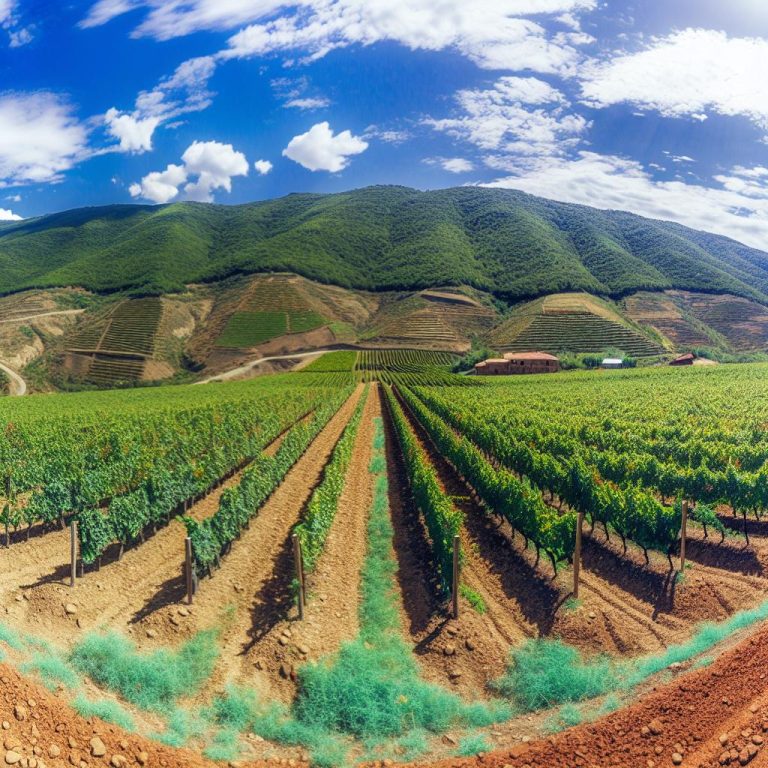Introduction to Georgian Wine Culture
Georgian wine holds a significant place in both the culture and religion of Georgia. With a documented history of over 8,000 years, Georgia is often referred to as the “cradle of wine.” The traditional methods of winemaking, such as fermenting grapes in qvevri (large clay pots), have been recognized by UNESCO as an Intangible Cultural Heritage. This ancient practice highlights the deep-rooted connection between wine and Georgian identity.
The Role of Wine in Georgian Culture
Wine is deeply integrated into the everyday life of Georgians. It is more than a mere beverage; it symbolizes hospitality, friendship, and unity. When visiting a Georgian household, guests are typically greeted with a glass of wine, reflecting the nation’s famed hospitality. Wine serves as a key element in supra, the traditional Georgian feast, where it is consumed in abundance and used to make toasts that honor guests, family, and the host country.
One unique cultural aspect of Georgian wine is the role of the tamada, or toastmaster, during these feasts. The tamada is responsible for leading the toasts, ensuring that each one is meaningful and enhances the social bonds among the attendees.
Wine and Georgian Traditions
Further emphasizing its cultural importance, wine plays a crucial role in various traditions and customs. It accompanies ceremonial events such as weddings, funerals, and religious celebrations. These occasions often involve specific rituals that incorporate wine, reflecting its symbolic value in marking significant life events.
The Religious Significance of Wine in Georgia
Religion plays a pivotal role in Georgian society, and wine holds special religious significance within the Georgian Orthodox Church. Wine is considered sacred and is an essential element of the liturgy. During religious ceremonies, wine symbolizes the blood of Christ and is used for Holy Communion.
Georgia was one of the first countries to adopt Christianity in the 4th century, and since then, wine has been an integral part of religious practices. Numerous monasteries produce their wine, keeping alive the ancient traditions and serving as custodians of the spiritual link between wine and faith.
Conclusion
Wine’s profound influence on both Georgian culture and religion is undeniable. This beverage is not only a key component of social gatherings and traditional rituals but also a symbol of faith within Georgian Orthodoxy. The unique methods of production and consumption reflect a centuries-old heritage that continues to be celebrated by Georgians today. For further reading on the cultural and religious significance of wine in Georgia, you may explore resources like the Georgia About.
An In-depth Exploration of Georgian Wine’s Rich Heritage
To understand Georgian wine is to delve deep into the history, culture, and traditions of a country where winemaking is more than a craft—it’s an intrinsic part of the national identity. Georgian winemaking is a tapestry woven with threads of ancient traditions, religious significance, and cultural practices that remain vibrant to this day.
The Ancient Roots of Georgian Winemaking
It’s through archaeological discoveries that the impressive timeline of Georgian winemaking is drawn. Historical evidence, such as ancient artifacts and remnants of winemaking facilities, point to a civilization that mastered viticulture long before many others even began. The earliest grape pips were discovered in the Shulaveri area, dating back to 6000 BCE, revealing a community skilled in grape cultivation and wine production.
The qvevri, a large egg-shaped clay vessel, remains the hallmark of Georgian winemaking. These vessels are buried in the earth, allowing wine to ferment naturally and slowly, imparting a unique character that is distinctive to Georgian wines. This method preserves the original flavors and aromas, differentiating it from other global wine production techniques.
Qvevri: A Testament to Enduring Traditions
The craft of creating and using qvevri has been passed down through generations, reflective of the broader cultural significance of wine in Georgia. It’s not merely a technique but a cultural heritage that Georgians maintain with pride. Each qvevri is crafted with care, sealed with beeswax, and requires years of experience to perfect. The deployment of qvevri illustrates an adherence to a natural, organic process that shuns additives and interventions prevalent in modern winemaking.
Modern Renaissance of Georgian Wine
In recent years, Georgian wine has gained international recognition, opening new doors and markets across the globe. This resurgence is not simply a market trend but a revival of a tradition that brings the taste of Georgian heritage to a wider audience. The authenticity and originality of Georgian wine have captured the interest of oenophiles worldwide, leading to an increased presence in wine exhibitions and competitions.
The country’s distinct grape varieties, such as Saperavi and Rkatsiteli, contribute to the unique flavor profiles that set Georgian wine apart. Each variety is adapted perfectly to the country’s diverse topography, climate, and soil composition, resulting in wines that are varietal expressive and terroir-driven.
Embracing Future Challenges
Georgia’s proud legacy of winemaking does face challenges as it integrates more deeply into global markets. Winemakers are tasked with maintaining the balance between tradition and innovation, ensuring that the historical practices are respected while meeting the demands of a growing international market. The increasing pressure to conform to contemporary wine trends challenges the steadfast adherence to traditional methods.
The preservation of ancient varietals and practices raises critical questions about sustainability, environmental impacts, and cultural preservation. Efforts are being made to protect vineyard biodiversity and maintain the ancient gene pool of grape varieties unique to Georgia.
Furthermore, educational initiatives aimed at training new generations in the traditions of Georgian winemaking are crucial. The academic community, governmental bodies, and private sectors continually engage in research and development to secure the future of this cherished cultural element.
As Georgia embraces these challenges, the commitment to sustaining this time-honored tradition remains unwavering. This dedication ensures that Georgian wine, with its rich bouquet of history, culture, and craftsmanship, continues to hold its rightful place on the global stage.
